Feel Your Fantasy: The Drag Race Cluster
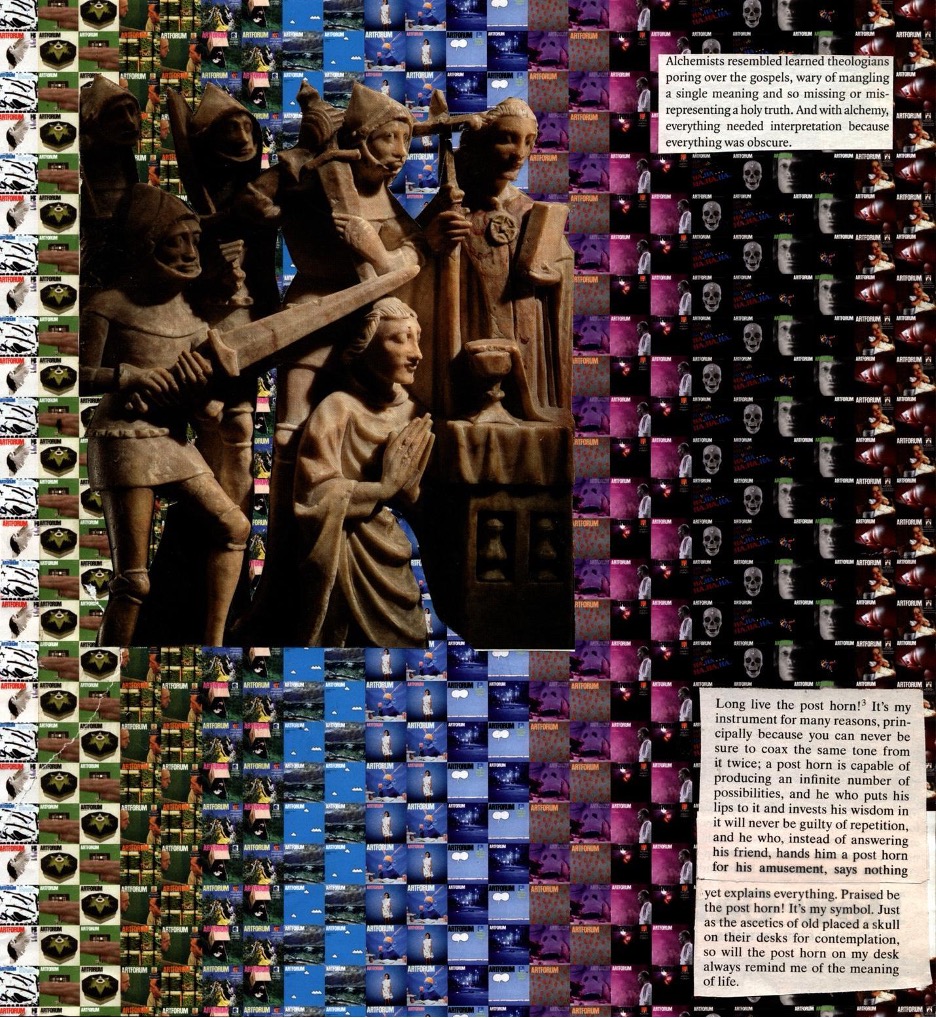
Though it marks the end of each episode, RuPaul's request for "an amen" is where I want to start because it distills, for me, the fundamental fantasy that animates the show. I'm talking as much about the injunction to love ourselves as I am about the call for verbal affirmation that accentuates and actualizes it. The gamble the show repeatedly makes in these final moments is also the bet I'm making here, namely that putting the reality we hope for into words will be tantamount to manifesting it in the world. Saying it like this, however, belies the complexity that such a project entails, as if a simple statement is enough to counteract entrenched histories of gender policing, racial discrimination, and homophobia. But Drag Race's signature sign-off is anything but a simple speech act; rather, its insistent repetition, together with the repetition of its insistence, activates the practical linguistic effect that the show can never stop trying to achieve. More specifically, these closing verbal gestures display the central place that citation has in bringing the fantasy of Drag Race to life. Plucked from an African American tradition of charismatic preaching, RuPaul's concluding question embodies the kind of living words that we will see citation quite literally, if only ephemerally, summon into our midst. Indeed, we might say that the very word "amen," an exclamation meant to express agreement and assent that doubles down on the preceding proclamation, functions as an implicit citation of Ru's gospel of love. This productive self-referentiality becomes explicit over the course of multiple episodes as recurrent utterances like these give form and structure to the show's reality — which is, of course, to say that it realizes its fantasy out of repeated citations of itself.
To any long-time watcher of Drag Race who has internalized the captivating catchphrases that organize an episode or shared a meme capitalizing on one of the trending taglines that every season tries to produce, these claims will come as no surprise. And to anyone with even passing knowledge of gender and queer theory, they will seem downright derivative: Judith Butler excavated the citational performance of gender signification as far back as 1990.1 My argument thus constructs itself, with righteousness and reverence, as one more reprise of a discourse that continues to inform, if not to regulate, our understanding of how Drag Race and its disciples work (werk?). In this I am following Sasha Velour, whose decision not to impersonate Butler in the Snatch Game of Season 9 only highlights the rhetorical or the linguistic presence her articulations possess as part of the trouble the show takes to engender itself before our very eyes. As my opening amen should announce, I am approaching the constitution of the Drag Race fantasy through what we could tellingly call a verbal lens, by which I mean the practically Adamic power that words wield within television's — and drag's — potently visual world. The most profound operation of citation here is the interplay between linguistic articulation and the images or appearances that it ramifies. This interplay shows us how the various forms of repetition that citation makes so obvious simultaneously introduce novel possibilities of significance: new meanings for our words and for our world that enhance and enrich the texture of our experiences.
With this dynamic in mind, I supplement my commentary with a selection of visual collages that I began making in the depths of the pandemic quarantine using nothing more than an X-acto knife, rubber cement, and a tall cocktail. (I've yet to need a hot glue gun.) Culled mostly from the ephemera of my everyday periodical reading rather than from any RuPaul-related publications, they "illustrate" my argument in so far as they function as graphic, paper-based citations of the kind of speech that gives shape to the Drag Race fantasy. They are, I like to say, drag performances of my academic work, attempts to speak a certain fantasy intellectual life into material existence.
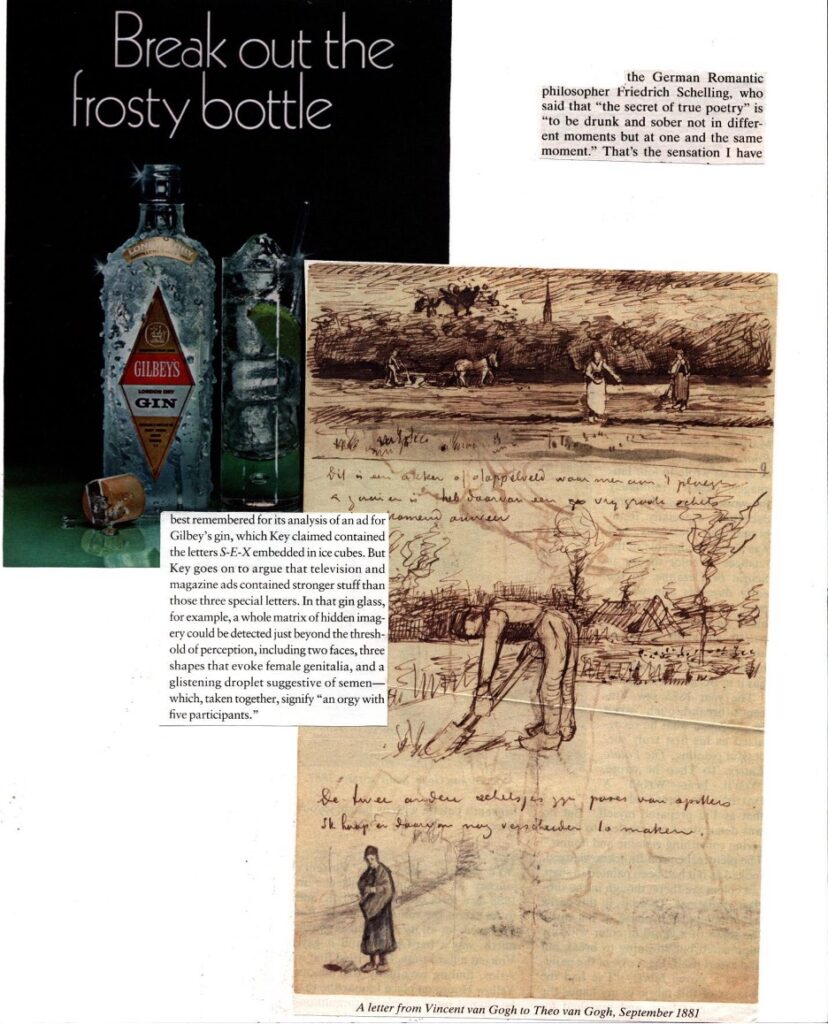
The Snatch Game is the place I want to start my discussion because, in addition to being a citation of the American classic Match Game, it also functions as a microcosm of the show, a moment in which the queens must don alternative or additional personas to perform the roles of contestants on the kind of competitive game show they are already on. Asking them to perform performance itself, to "speak" a drag routine at the same time as they are doing it, Snatch Game opens up and displays the fantastic vitality that citation makes available as the show's most vital fantasy. This might be one way to understand RuPaul's draconian demand that the queens be funny; humor serves as the index of the kind of vivacious performativity at which the challenge is aimed. It's not enough that the queens embody their characters. Their embodiments must themselves also act and react in real time - must be, in other words, hyper-alive. (A vital fantasy, indeed.) And though there is plenty of room for the liveliness of physical comedy in the Snatch Game, the task of penning an answer to the questions RuPaul poses emphasizes the special premium that the show places on verbal agility. This is the test that Sasha Velour's preliminary crack at impersonating Butler fails so definitively but that her ultimate performance as Marlene Dietrich nails so pronouncedly.
Early in the episode, when RuPaul is chatting up the queens about their plans for the show, he parrots some Snatch Game banter with Velour, asking "Now Judith Butler, should I have the meatloaf or the hot dog at the diner down the street?" Velour's response falls flat to the extent that its citation of Butler's theories is not quite able to speak itself as one: "I'm understanding that in this example hot dog actually stands in as a kind of social construct, a metaphor, if you will, for the idea of a man's sort of center of his phallic primacy" (to which RuPaul laconically responds, "I'm glad you're doing Marlene Dietrich"). It's actually a rather successful attempt to channel the critique of gender essentialism and the hierarchies of power that it supports, and Velour is very much imitating Butler's discourse. But the phrasing never quite reaches the metaphorics it's trying to articulate. Though the "academic" tics in phrases like "I'm understanding that in this example" and "a metaphor, if you will" gesture towards both the performance of an intellectual persona and the real-time production of these thoughts, the overly straight take on "standing in" and the hot dog as a "social construct" treats these figments of figuration a little too literally for a drag performance. The problem is not necessarily that gender theory can't be funny (though that might be an order as tall as my collage cocktails) but rather that Velour gives herself only minimal discursive room to accentuate the kind of vigorous constructedness that would make these ideas more than just a dead letter.
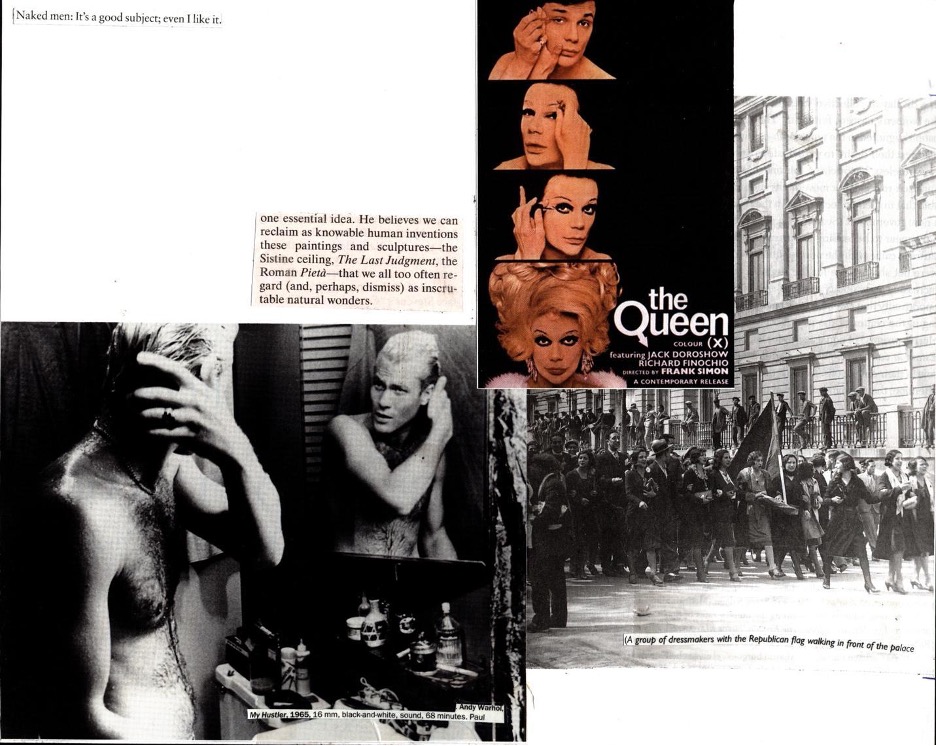
It is precisely such vigor that distinguishes Velour's Dietrich as one of the stand-outs in the season's Snatch Game (and herstory!), and the way she accomplishes what her costume might allow us to imprecisely call a hat trick effectively resuscitates those lifeless words. From the very first lisped syllables, we are aware not just of Velour's speech but also of its speaking: "Sank you so much for having me, RuPaul, on your Dwag Race," she begins in a raspy, accented English. While the doubled discourse that Velour's pronunciation introduces into these words may not yet fully constitute self-citation proper, the comments that follow move in this direction. "I see you're also wearing a suit," she says to RuPaul, confirming their shared fashion choices, while nodding to the characteristic look he habitually highlights with his references to its Klein, Epstein, & Parker tag. "You know, when I wear a suit," she continues, "people say, 'Marlene, are you a lesbian?,' and I look at them and I say, 'Yes.'" The toggle between the visual and the verbal animates the silent assumptions of gendered performativity that regulate the everyday life of celebrity personalities and no-name persons alike. Indeed, this animation finds its most fundamental articulation in the pithy "and I say, 'Yes'" that provokes a round of laughter on the stage — the affirmative power of speech is itself affirmed in the simple snatch of the "Yes." What we have here, in other words, is a statement that cites itself in a way that, perhaps paradoxically, breathes life into these words.
The fact that this life comes from the citational convolutions of speech finds further evidence in the rest of Velour's act, for none of her statements come off without an avowal of their own linguistic makeup. To wit, "As a point of principle, I make sure that every homosexual pussy that I meet receives a Marlene-signed photograph" — the citational autograph vouching as much for the reality as for the fantasy of the image — or her subsequent come-on to guest judge Candis Cayne that explicitly presents itself as a promissory speech-act, "I promise that Teutonic bisexuals make the most forceful and unforgettable lovers." There is even and perhaps most luridly her nonsensical response to RuPaul's prompt about new Snapchat filters in which she protests her ignorance and states that "I died many decades ago so I wrote Tomaten, Kartoffeln, Sauerkraut." Not only do we get non-English terms that parade their wordiness as much as their Germanness, but Velour rouses one of language's most fantastic effects: that it continues to speak for us, continues to speak us, when we are physically gone. Taken together, Velour's Snatch Game comments enact the way citation erects a short-lived presence out of absence, a linguistic composition that fleetingly sustains the very fantasy of speech. To say this is also to remark again on the operation of citation as the driving force of the discussion here, since my repetition of Butler's thinking about constructedness, my reading of Velour's knowing repartee, or my reference to RuPaul's contagious catchphrases are precisely what allow me to say something more than any of our statements could have said on their own — which might begin with accentuating their saying but does not essentially end there.
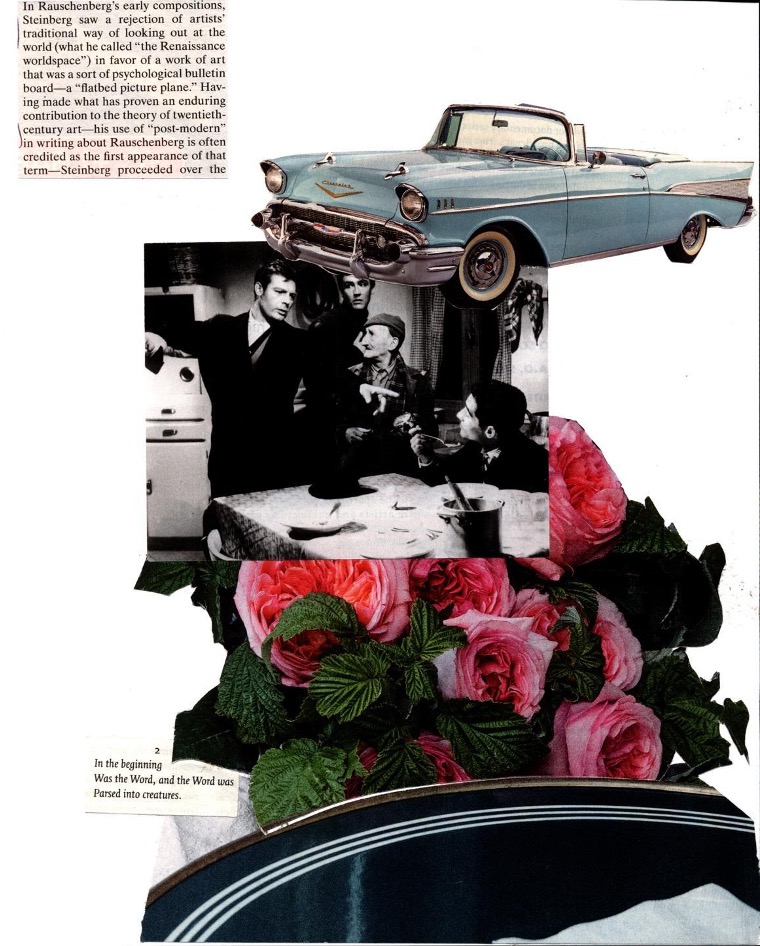
While Snatch Game is the place where the queens on Drag Race give citation one of its most obvious and robust performances, the show emplots its own citational dramatics, developing and dispersing the speech of fantasy beyond any single voice and even beyond words in particular. I'm referring to the "COMING UP" promos that punctuate the progression of each episode. These montages — which I'm going to call filmic collages — function much like RuPaul's repeated refrains and contribute to the organization of the show's structure by slicing up its narrative arc into segments both marketable and meaningful: with each commercial break, we know we are entering a new phase of the competition. But by showing us snippets of what is to come, the teasers also subtly stage our "actual" viewing of the show's events as, at least in part, a repetition of things we've already seen. One effect is to transform the lived experience of our viewing into a live experience of citation, to transmute, through a kind of formal alchemy, the recorded performance of the show into the living performativity we've just been examining on the show. When, for example, the Snatch Game breaks after introducing its contestants, the "COMING UP" medley features the laughter-inducing exploits of Nina Bo'nina Brown (playing Jasmine Masters), Valentina (playing the mistakenly-crowned Miss Universe Ariadna Gutiérrez), and Alexis Michelle (playing Liza Minelli). In the segment of the show that follows, the viewer can literally recognize these clips, allowing them to stand out from the array of the game's antics and to stand in as a representative cross-section of the scenario. If the kind of forthright verbal articulation I am gathering under the banner of citation enlivened what otherwise threatened to become flat imitation, here I am making a similar point but in more abstract and rudimentary terms: the citational relationship between the "COMING UP" montage and the action "proper" imparts something like linguistic structure to the show's visual experience. Splitting up the continuity of its performance into discrete units to be assembled in contiguous fashion, these edited sequences are, fantastically, how Drag Race speaks what it would otherwise only be able to show.2
And not just this. Such a claim for the show's own speech relies on contorting the operation of citation beyond its traditional conception, which usually depends on what is being cited coming before the citation itself. The reversed direction I've been previewing also provides these comments' most utopian and (fittingly) most unoriginal articulation of the Drag Race fantasy. I'd like to go so far as to say — and I know this is really only in the analytical imaginings I'm using these comments to cultivate — that the linguistic effect of the "COMING UP" collages opens opportunities for us to practice occupying a world different from and in fact more than what we take it to be. They are moments, in other words, when Drag Race exceeds our ability to identify just what it is saying to us, when it signifies more than meets the eye. I came to this thought while binging an entire season over a day or two (which I could attribute to the pandemic, but of course I did it before then too), when the space between the montages and the scenes they sampled was no more than nominal.3 In those hours of viewing, when my life and the show seemed to be pretty much one and the same, I began to see these cutaway moments as places in which Drag Race sometimes floated a slightly different version of itself, anticipating its upcoming events in carefully inexact ways. I was struck, that is, by how often what the montage led me to expect both was and was not what ended up "really" happening.
Reflect, for instance, on the jumble of clips that forecasts the episode's runway contest: the category "Night of 1,000 Madonnas: The She-quel" is itself, already, such a dizzying vortex of internal and external allusions that it seems actually able to subsist on nothing more than the strength of its own citationality. After a quick tableau of a smiling judges panel, the introductory shots we get are of Peppermint, wearing the pink satin and platinum bouffant of Madonna's Marilyn-inspired Material Girl ensemble, immediately followed by Shea Couleé in essentially the same outfit: "uh oh," we hear guest judge Denis O'Hare react.
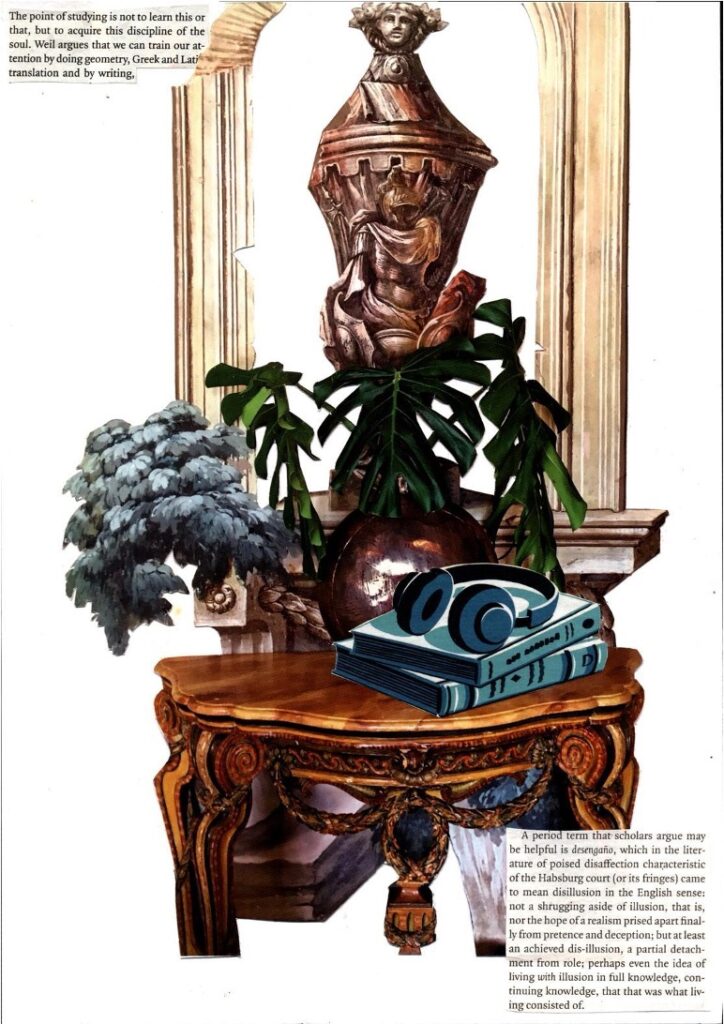
Indeed, if the chain of references was starting to swirl out of control with Peppermint, Shea's look seems to stop them in their tracks. Or this is at least the impression we're given by the cut to Ross Matthew's face falling in disappointment and Michelle Visage's almost hysterical cry "How does that happen?" Though Shea does follow Peppermint with quite similar diamond-dripping attire, these reactions are not actually the ones that accompany the runway sequence in the show's "real time." Instead, we're treated to a sally of characteristically punny quips from the judges — "Déja Vu!," "I think she stole that look," and "Drag queens really do seem to prefer blondes" — that articulate and enliven the repetition as their own citationally expressive performance.
It's not until Nina Bo'nina Brown, dressed in Madonna's pants-less punk costume from the 2013 Met Gala, walks out on the heels of Trinity the Tuck's (née Taylor) tighter interpretation of the same garment that we glimpse Ross' unenthused expression from earlier. Similarly, Michelle's incredulous query reoccurs only once the judges have started deliberating on their own, this time not as a response to the Peppermint-Shea coincidence but to Cynthia Lee Fontaine's disastrous portrayal of Sofía Vergara in the Snatch Game (despite her accent!). As I noted these kinds of mismatched edits across episode after episode, it seemed to me that I was often watching two different shows at once, two different versions of the story being told that were also somehow the same. In this case, Ross and Michelle were censuring the repetition of the reference to the fact that we are living in a material world, even as they were also questioning Nina's untailored couture and Cynthia's inability to get into the Vergara groove. Just whose fantasies are these, I found myself wondering: mine? RuPaul's? the producers'? Or, are they somehow being dreamed up, in an impersonal mode, by the show itself? Many instances of this kind of expressive excess come about in the context of the judges' evaluations, which might be significant for thinking more extensively about the kind of critical, readerly life that Drag Race cultivates in us, how it trains us to see our experience as a collection of piecemeal fragments produced by and ripe for extraction, repetition, and recontextualization. But for the moment I simply want to take the cleverly contradictory headspace that I kept finding myself in as a more general image of citation's intellectual and even existential payoff. As it reinforces the linguistic, if not always wholly verbal, framework that gives sense to our sensuous experiences, citation not only ruveals the iterative process of signification that makes reality meaningful. It also, and perhaps even more fantastically, carves out a space in which other meaningful realities can and do adhere. Can I get an amen?
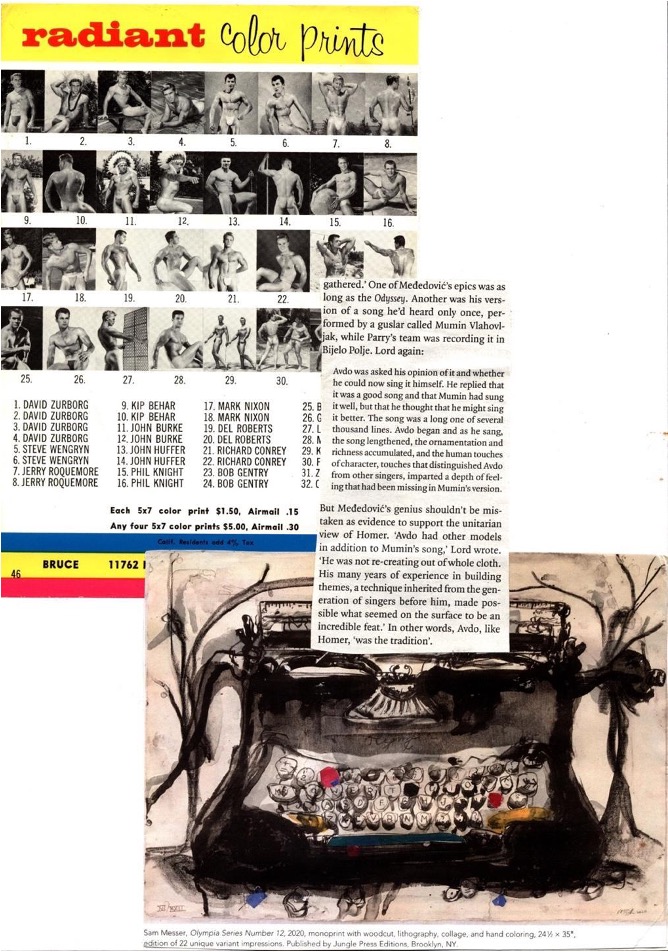
John Lurz is an Associate Professor in the English Department at Tufts University, where he teaches courses in twentieth-century British literature and some literary theory. His love of physical texts led him to publish The Death of the Book: Modernist Novels and the Time of Reading in 2016, and his equivalent love of language is helping him finish his current manuscript "The Barthes Fantastic: Literature, Criticism, and the Practice of Language." He hopes to include some more of his collage work in the new book; a more extensive selection can be found on his Instagram page (https://www.instagram.com/johnlurz/). When he isn't reading, watching Drag Race, or cutting up magazines, he likes to eat spicy food, paint his nails gold, and play with his pitbull Stevie Nicks.
References
- See Gender Trouble: Feminism and the Subversion of Identity (New York: Routledge, 1990).[⤒]
- For further, more technical detail, see Ferdinand de Saussure, Course in General Linguistics,Trans. Wade Baskin (New York: McGraw-Hill Book Company, 1966) as well as Roland Barthes, Elements of Semiology, Trans. Annette Lavers and Colin Smith (New York: Hill and Wang, 1967) and The Fashion System, Trans. Matthew Ward and Richard Howard (Berkeley: University of California Press, 1990). Indeed, as some of my wording makes apparent, the particular argument about fantasy I am making here anticipates the larger inquiry into what I call "the fantastic" in my forthcoming book The Barthes Fantastic: Literature, Criticism, and the Practice of Language, especially Chapter 4, "Citation and its Image."[⤒]
- My model here, as in so many things, is D.A. Miller, particularly "The Long Wrong Man" in Hidden Hitchcock (Chicago: University of Chicago Press, 2016). [⤒]
